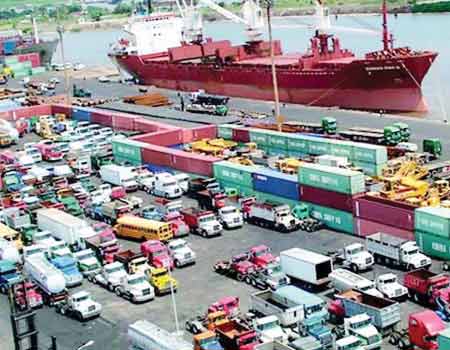[ad_1]
Since the withdrawal of the Pacific International Lines (PIL) from Nigeria’s Fleet Implementation initiative in early 2017, more facts have emerged on why Nigeria’s efforts to revive her national fleet policy has continued to hit the rocks.
Recall that in early 2017, PIL pulled out of Nigeria’s National Fleet Implementation Committee despite having signed a Memorandum of Understanding (MoU) with the Federal Ministry of Transportation in Singapore for the establishment of the proposed shipping line before the end of 2016.
According to details made available to the Nigerian Tribune by a member of the Fleet Implementation Committee, nine reasons given by PIL for it withdrawal remains unresolved six years after the botched attempt.
According to the impeccable source, “In 2017, PIL pulled out of the agreement reached with Nigeria in late 2016. The shipping company gave nine reasons for her withdrawal from the agreement. It has been six years since that attempt at fleet implementation by Nigeria collapsed, those reasons given by PIL are still there, and that’s why Nigeria has struggled to get another notable shipping liner to partner her in her fleet implementation effort.
“The nine issues affecting our national fleet implementation efforts are: Inability to agree on the percentage of cargoes that would be transported by the national shipping line; Exemption from Import Duty; Exemption from payment of the three percent NIMASA levy;
“Exemption from Corporate Income Tax; Privilege to make payment in Naira for all government levies or taxes, if any; Dividend proceeds to be remitted out of Nigeria; Review trans-shipment procedures in Nigeria in line with best practice (this mainly addresses issues on custom declaration/formalities and VAT related to trans-shipment related expenses;
“Concessionary tariff rates from Nigerian Ports Authority (NPA); and priority berthing for Nigerian flagged vessels.
“These nine major reasons are why Nigeria’s fleet implementation drive cannot become a reality. Most of the demands made by PIL in 2017 are still what many of the shipping lines approached demand for today.
“While it has been easy convincing agencies of government domiciled in the Ministry of Transportation to soften their stance as regards some of the levies listed by these shipping firms, it has been extremely difficult to convince agencies of government outside the Federal Ministry of Transportation to soften their stance.
“For agencies like Nigeria Customs Service and the Federal Inland Revenue Service (FIRS), exemption from Import Duty and exemption from Corporate Income Tax has been an issue that has defied all efforts.
“Governments of major shipping nations appreciates the development of the shipping sector as a national policy by triggering incentive measures from relevant agencies of government such as Ministries of Finance, Commerce and Trade, etc. Those countries design special incentives for their shipping industries to make them competitive in the global space.
“However, the critical buy-in of Nigeria’s fleet implementation project by key MDAs which includethe Federal Ministry of Finance, Nigeria Customs Service and Federal Inland Revenue Service (FIRS) are still largely non-existent, as there is currently an over-emphasis by these MDAs on what Nigeria stands to lose in terms of revenue generation, in the short run, in contrast to what will accrue to the national economy in the long run in terms of increased indigenous tonnage, growth in ship registry and retention of freight earnings on cargo and contribution to the nation’s Gross Domestic Product (GDP).”
[ad_2]








